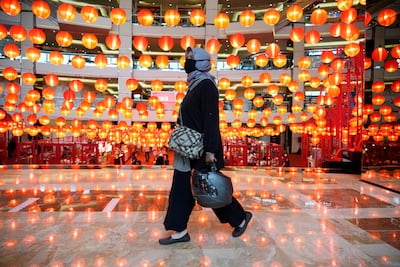Since I took office as the Chinese ambassador to the UAE, I have been invited to many majlises. I have personally witnessed the UAE’s leaders and ordinary people coming together for equal dialogue. This way of widely listening to people and soliciting their opinions has left deep impressions on me. The majlis is a uniquely Arab tradition of popular representation, which is full of vitality and vividly demonstrates the inclusive culture of the UAE.
For China as well as the UAE, two countries that prioritise peaceful development, this is the path of stability, mutual respect and co-operation. Shoes do not have to be the same as long as they fit; and models of governance do not have to be the same as long as they benefit the people. Ancient and present practices at home and abroad have shown that popular participation in public life is about the continuous involvement of the people in society, and there are many ways to achieve that. If people only have the right to vote in democratic elections, but not have the right to participate extensively in governance, being summoned up only for voting and entering dormancy afterwards, such democracy is not true democracy. Peace, development, fairness, justice, democracy, and freedom are the values across diverse societies.

Fifty years ago, under the leadership of Sheikh Zayed, the UAE’s Founding Father, the seven, previously independent emirates carried out similar consultations to establish a new country. Over half a century, they have united in tolerance and treated each other as equals, developing in harmony. It is worth mentioning that half of the members of the UAE’s Federal National Council are women. The body’s representatives are drawn from all walks of life, and are responsive to public opinion.
The Supreme Court of the UAE integrates the evolving social and economic paradigm with traditional Islamic law, and ensures the tolerance and fraternity of diverse ethnic groups. The recent establishment of the National Human Rights Commission in the UAE shows its determination to further protect human rights. The fact that UAE has been among the top of rankings for happiness and stability in the world for many consecutive years speaks to the effectiveness of the country’s system of governance.
Whether a country’s path will work depends on whether it suits the national conditions, whether it conforms to the development trend of the times, whether it brings about economic development, social progress, people’s well-being and social stability, whether it can continuously improve the people’s livelihood and gain the support of the people, and whether it can contribute to the cause of human progress.
The UAE and China share in this understanding. Over the past 50 years, the UAE has developed from desert fishing villages to one of the most important trade, financial and shipping centres and a hub of tech innovation in the Middle East. Its GDP has entered the world’s top 30, and it has become the most affluent country and an active promoter of peace and prosperity in the Middle East.

China, meanwhile, has become the world’s second-largest economy, contributing over 30 per cent of global economic growth for many years and eliminating absolute poverty domestically. China spent only a few decades traversing a path that has taken others hundreds of years. It has established a moderately prosperous society across multiple dimensions and become an important force in maintaining world peace and stability.
Both China and the UAE take that spirit of inclusivity to their approach to international relations, advocating for extensive consultation, joint contribution and shared benefits. We uphold true multilateralism, call for more inclusive global governance and encourage co-operation based on equality, mutual benefit and mutual respect to achieve common prosperity.
The UAE taking seat as a non-permanent member of the UN Security Council will further elevate the potential for close co-operation between us in international and multilateral affairs.
China and the UAE share similar development concepts, connecting policy goals, and close co-operation ties. In the new year, China will continue to work with the UAE to jointly promote the common values of mankind, build a community with a shared future for mankind and make greater contributions to the development of human civilisation.


